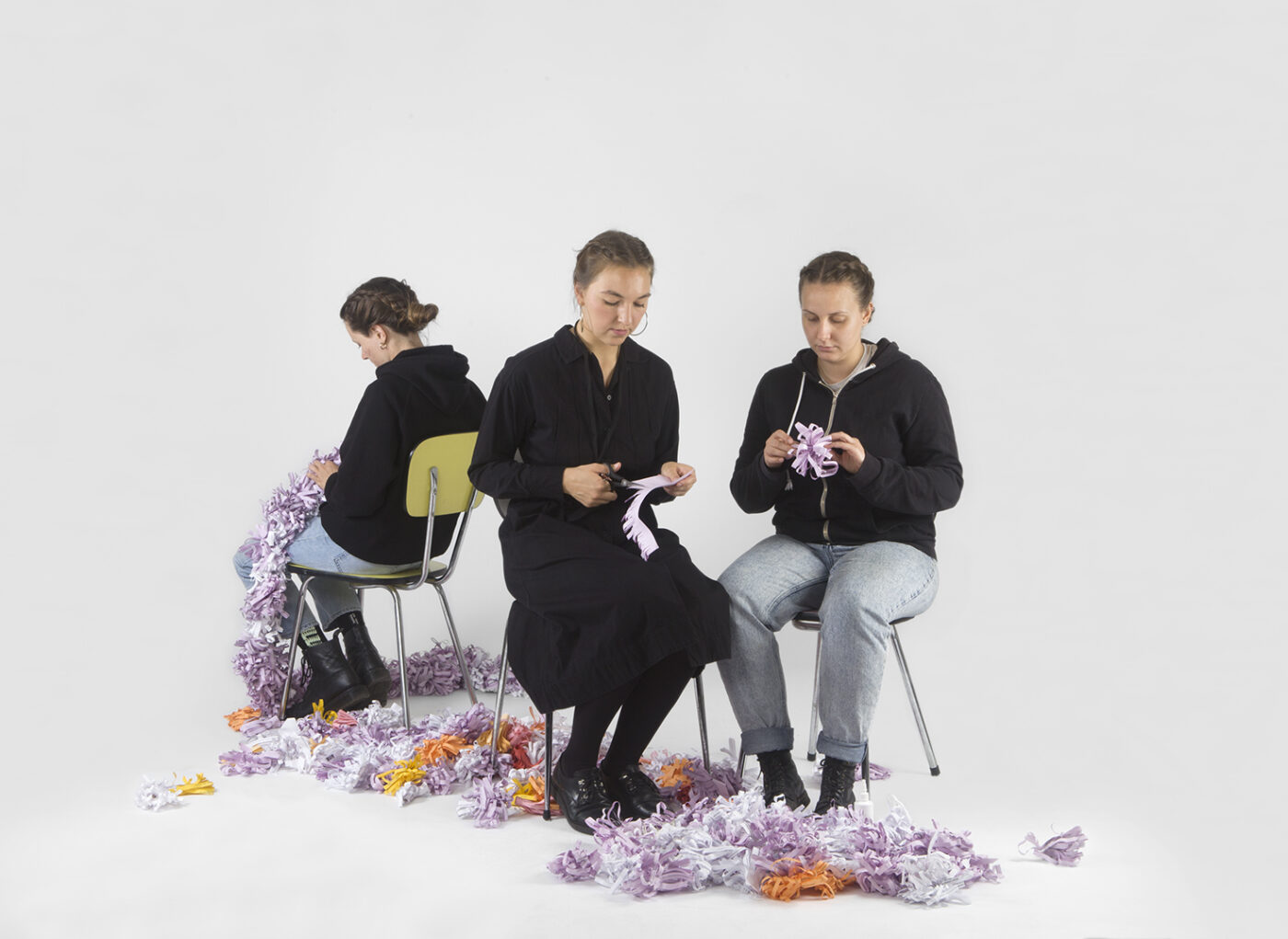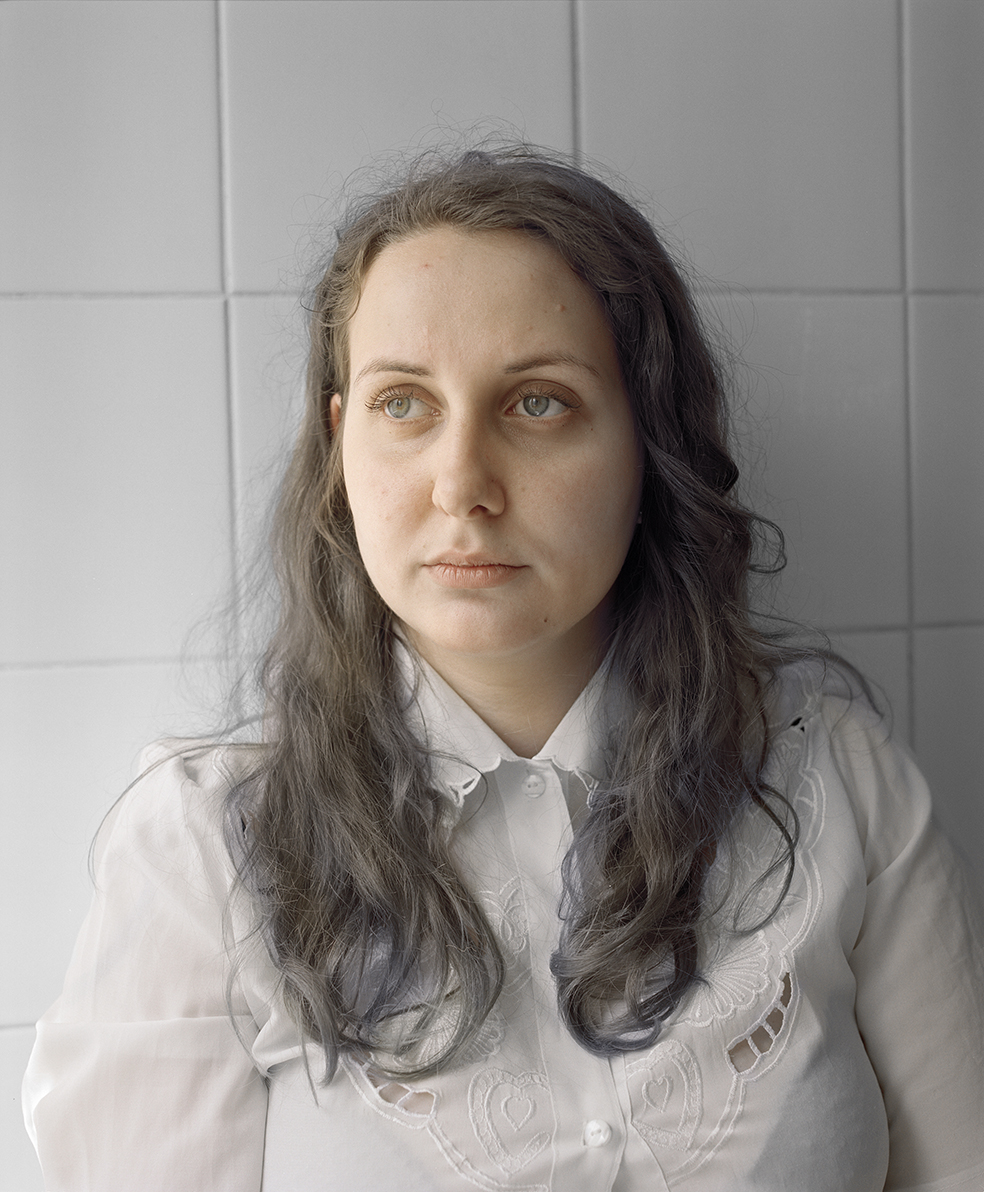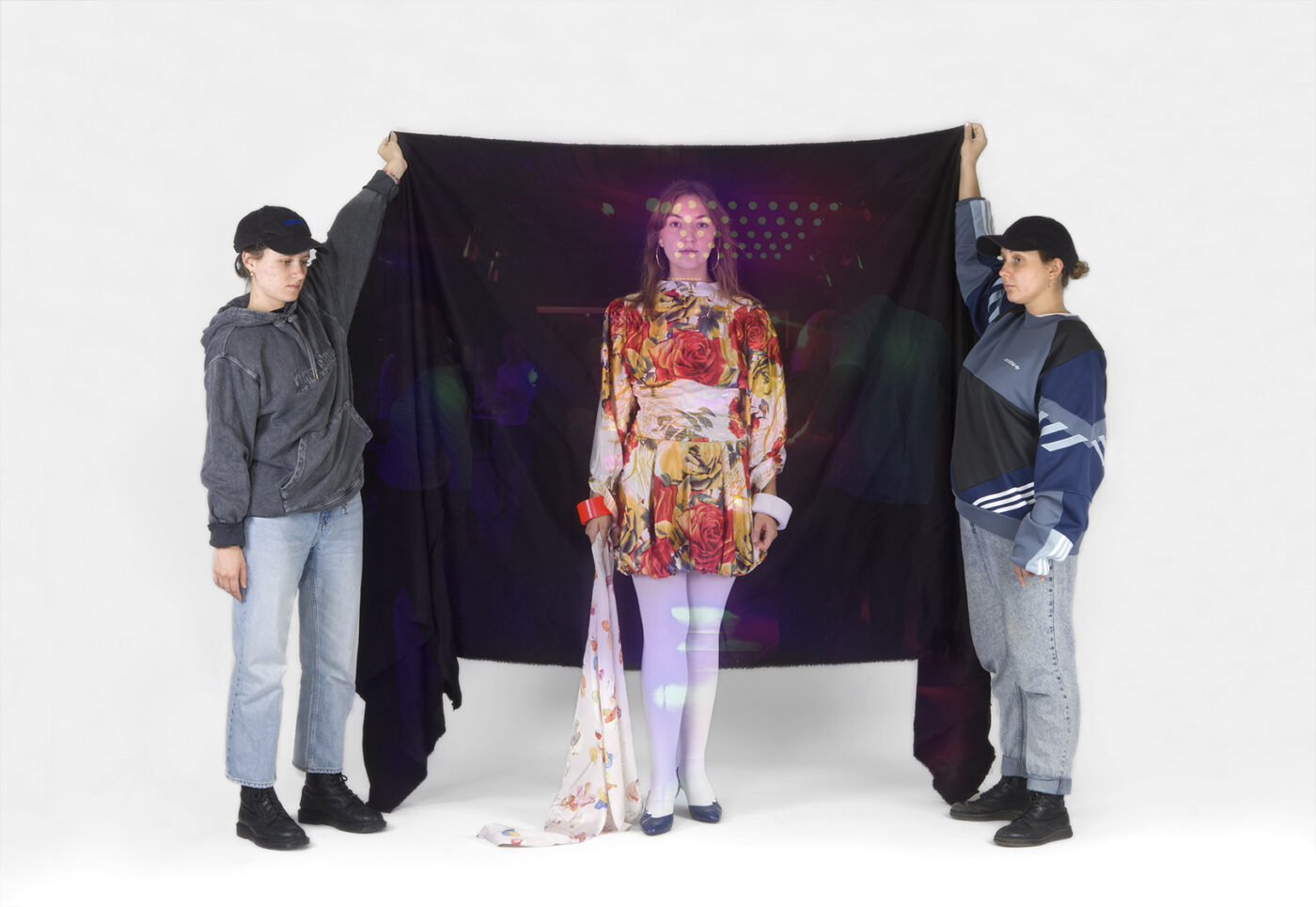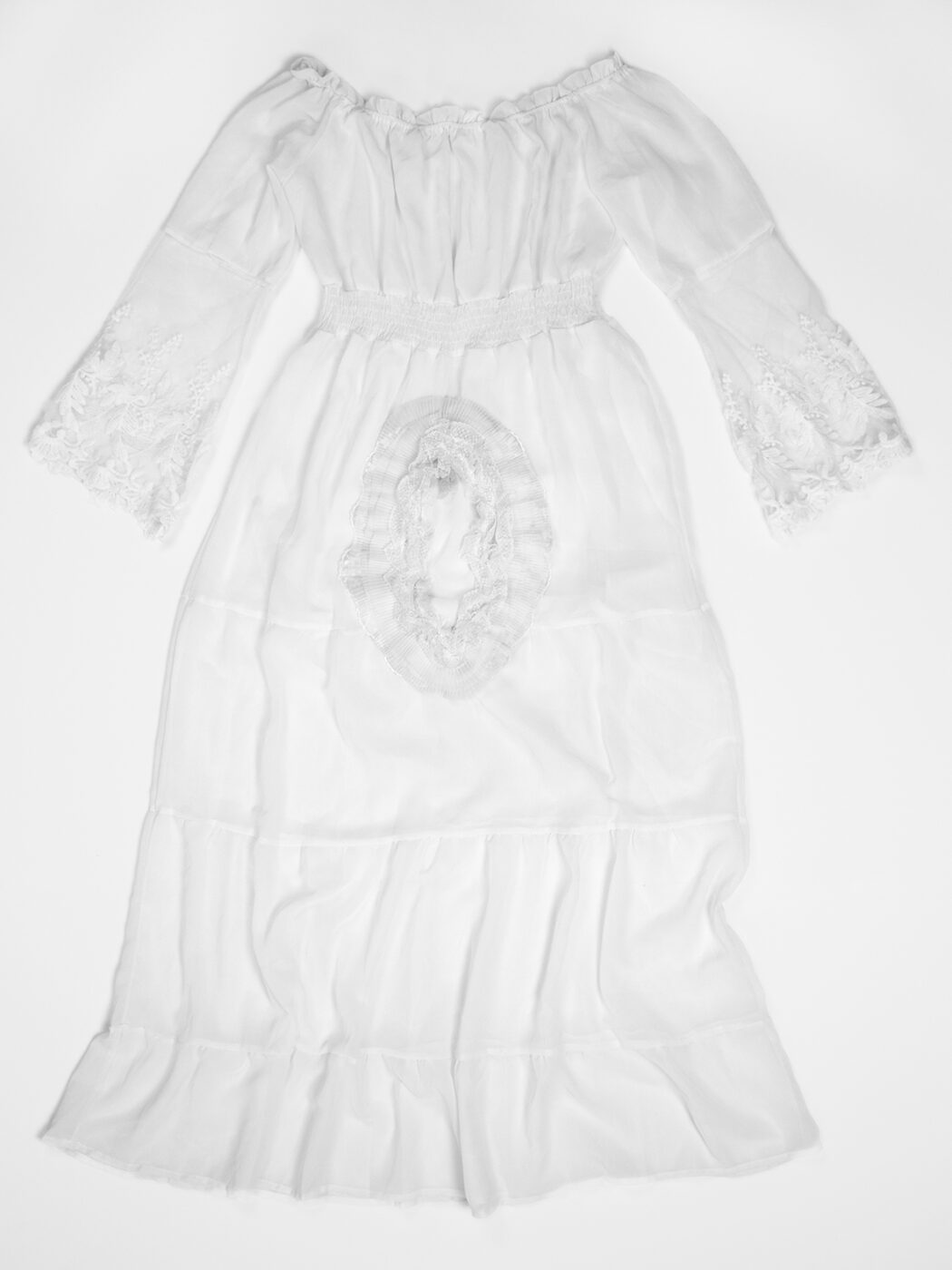
Wiktoria Synak, Me, from Dom, 2020 August 2015. I arrived in Brussels, aged twenty-one, to continue my studies. I had to fill out tons of paperwork. Now, these documents are useless and I make flowers out of them.
1/4

Wiktoria Synak, Olga, from Dom, 2020 In November 2018, I met Olga. She was my age. Before she started Art school, she was cleaning houses in the upscale
neighborhoods of Brussels. One day, one of the rich women who employed her told her that: “There is no future without education.”
2/4

Wiktoria Synak, Club Rotana, from Dom, 2020 June 2019. Today these women are financially stable, but after thirty years of sacrifice and discipline, they realize they never tasted tenderness. This is why they go to Club Rotana. On Sunday afternoons from 5 to 11 pm., Club Rotana becomes the meeting place for older Polish women.
3/4

Wiktoria Synak, L’autre Wiktoria 2, from Dom, 2020
4/4
Het is al zeven jaar geleden dat ik mijn geboorteland Polen heb verlaten. Mijn vertrek heeft in mij de noodzaak aangewakkerd om mijn land in vraag te stellen, want het blijft opduiken in mijn geest en in mijn werk. Ik wil graag begrijpen waarom Polen zo in mij blijft resoneren. Waarom zoek ik dat land steeds op in het buitenland, terwijl ik er net aan wilde ontsnappen? En tenslotte, hoe zou ik eraan kunnen ontsnappen? De antwoorden komen nooit en de vragen blijven zich alleen maar opstapelen. Mijn werk geeft mij de mogelijkheid om tussen verschillende identiteiten te zwerven. In mijn praktijk vermengt fotografie zich met fysieke aanwezigheid, tekst, installatie en geluid. Ik stel de man-vrouw dynamiek in vraag binnen twee groepen die ik goed ken: de familie die ik in Polen achterliet en de Poolse arbeidersgemeenschap in Brussel. Ik stel ook het belang van het huis in vraag binnen deze man-vrouw interactie. Ik speel met wat het huis representeert: huizen die verdelen en huizen die nieuwe gebieden creëren hier en elders; de huizen die Poolse mannen opbouwen en afbreken; de huizen die Poolse poetsvrouwen schoonmaken; het huis waaruit ik ben ontsnapt en het huis dat ik probeer te bouwen hier in Brussel.
It’s been seven years since I left Poland, the country of my birth. This departure triggered in me the need to question my country, for it keeps on returning in my spirit and art works. What I would like to understand is why Poland resonates so much in me. Why do I constantly seek it out, abroad, when all I wanted was to escape? And finally, how might I finally be free of it? The answers never come; the questions only keep on multiplying. For me, the work is the occasion to cross over into a range of identities. My practice blends photography, physical presence, text, installation and sound. I question the male/female dynamic within two groups I know well: the family I left behind in Poland and the community of workers I found in Brussels. I question the importance of home in this male/female interaction. I play with what it represents: homes that divide and homes that create territories, here and elsewhere; the homes Polish men build and demolish; the homes Polish cleaning women clean, the home from which I escaped, and the home I am trying to build here in Brussels.
Cela fait sept ans que j’ai quitté la Pologne, mon pays natal. Ce départ a créé le besoin de remettre en question mon pays. Il revient sans cesse dans mon esprit et dans mes oeuvres. Ce que j’essaie de comprendre, c’est pourquoi la Pologne résonne en moi. Pourquoi je la cherche constamment à l’étranger alors que tout ce que je voulais, c’était m’enfuir? Enfin, comment puis-je m’en libérer? Les réponses ne viennent jamais; seules les questions se multiplient. Le travail est pour moi l’occasion d’errer à travers différentes identités. Ma pratique mélange la photographie, la présence physique, le texte, l’installation et le son. Je m’interroge sur la dynamique homme/femme au sein de deux groupes que je connais bien: la famille que j’ai laissée en Pologne et la communauté ouvrière polonaise que j’ai rencontrée à Bruxelles. Je m’interroge sur l’importance de la maison dans cette dynamique homme/femme. Je joue avec ce qu’elle représente: des maisons qui divisent, des maisons qui créent des territoires ici et ailleurs. Des maisons que les hommes polonais construisent et détruisent. Des maisons que les femmes de ménage polonaises nettoient. La maison que j’ai fuie et la maison que j’essaie de construire ici à Bruxelles.